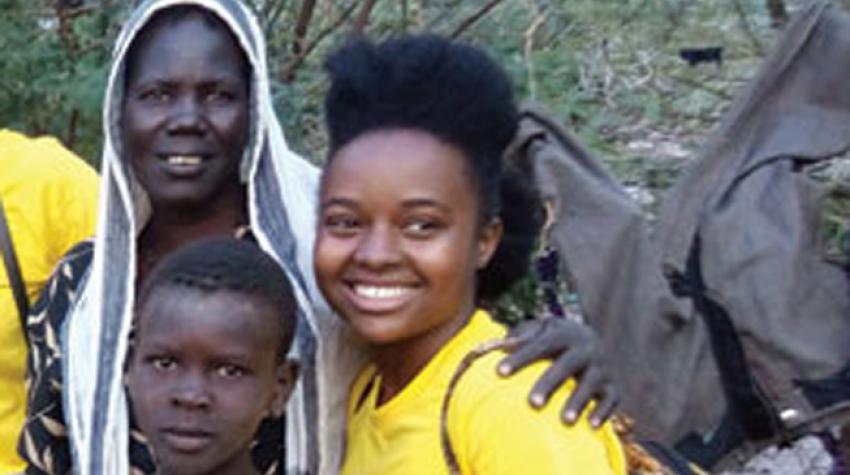December 2016, No. 4 Vol. LIII, Human Rights
The German writer, Thomas Mann, having escaped fascism in 1933, wrote that he was “too much of a good German and too much linked to the cultural traditions and to the language of [his] country,”1 to be able to accept the idea of his exile without feeling extremely apprehensive.
Let me ask an interesting question. What language do you dream in? If you speak more than one language, which one is your mind’s default setting in the unconsciousness of sleep? When we dream, we are the creators of our own imaginary world. In that ideal setting, the language you speak is the one you connect with most. I came to notice after some years of living in Kenya that although I spoke Swahili with the locals and was still learning English, when I took refuge in sleep, I dreamed in my native tongue, Kinyarwanda. I also remember that whenever my siblings and I got into trouble, my mom would, like a fine-tuned radio, switch to our mother tongue when berating us. Research into language learning reveals that people think most critically in their native language. When people reconnect to their culture and language, they strengthen their identity and develop a higher order of thinking. I believe that this also gives one a sense of purpose.
Today, there are 65.3 million displaced people in the world. These people have found themselves in a situation that could be of no one’s choosing. No one is further from home than they are, walking on foreign soil inhabited by foreign people who speak a foreign language. They have put aside their native tongue and taken up another for survival. When you look up the word “apprehensive” in the dictionary, the synonyms that come up are alarmed, worried, stressed, scared and terrified. Google defines “apprehensive” as “being anxious or fearful that something bad or unpleasant will happen”. Our world’s displaced people are certainly feeling apprehensive about their present and their future.
When Thomas Mann realized that he was not able to return home, he knew that change was afoot. He understood that he would have to fit into another context, another culture and another language. The thought of abandoning all that he knew terrified him. He could not fathom how he would be able to walk away from his culture and betray his language.
The biggest challenge for refugees is one that most people do not stop to think of. The level of change that these forgotten multitudes have to endure is astounding. Being strong is not a choice. They cannot orient themselves to where they are because their trip was never planned in the first place. There is no prophylaxis for the culture shock. You don’t carry with you the basic words to use in greetings or when asking for directions. You feel as though you have been thrust into murky waters, a lone, injured, with tape over your lips. You can’t even hide in your head because reality is too unforgiving.
Once driven out of their homes, away from all that is familiar, and every thing they have has been taken away, refugees struggle to find any kind of connection to their motherland. Through language and culture, they hold on to the memories of their departed loved ones and ancestors. When everything around them is changing, refugees can only ask for their hearts to remain true to who they are. Is material loss not enough? Should they have to lose themselves and their identity as well? No one should. Cultural preservation is essential for the survival of each and every community. Once we learn to appreciate the diversity and richness of the different cultures around us, we will be able to appreciate and understand the people themselves. We will be more human and better able to admit that no situation lasts forever.
Albert Einstein said that “Politics are for the moment. An equation is for eternity.” For humanity’s sake, we should preserve the spirit of these victims of politics. They may be the greatest leaders that the world has yet to know. They may just write an equation that lasts for eternity and be remembered for that, rather than for their statelessness. I may be a refugee now but one day when people pronounce my name, it will be for the change I have made or for the progress that I have fought for. My culture does not break me, it makes me.
Notes
1 Thomas Mann, “Letter to Albert Einstein”, 15 May 1933, in Thomas Mann, Briefe 1889 – 1936, Erika Mann, ed. (Frankfurt am Main: S. Fisher, 1961), p. 331 ff.
The UN Chronicle is not an official record. It is privileged to host senior United Nations officials as well as distinguished contributors from outside the United Nations system whose views are not necessarily those of the United Nations. Similarly, the boundaries and names shown, and the designations used, in maps or articles do not necessarily imply endorsement or acceptance by the United Nations.




